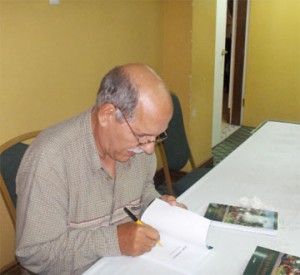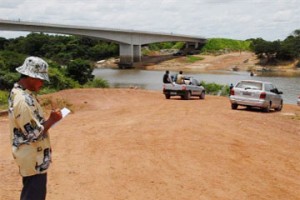Conservation International-Guyana (CIG) Executive Director David Singh says the construction of the Linden/Lethem road should balance development with preservation.
Singh, according to a CIG statement, welcomed the government’s announcement of the creation of an agency to implement a development plan for the roadway, saying that the country can learn the lessons of Brazil in interior road construction.

He said experiences in the Amazon basin provided excellent guidance and cited a recent journal, which described a hybrid governance structure for road management in the Amazon in which a range of stakeholders participate, including government, local communities and NGOs. The journal concluded that improved governance could help reduce the future impact of roads, without diminishing economic prospects in the region.
According to the CIG statement, the scientific publication cites road building as a key determinant of land use, given that roads reduce the cost of movement, capital and information and foster access to natural resources and markets for local communities.
“But at the same time roads fragment habitats, degrade stream networks and water quality, foster the spread of exotic invasive species, cause social conflicts, wildlife and species loss and may catalyse climate change. In most cases the worst effects are the result of an unplanned and often illegal road networks that spring up as persons create adjacent networks of roads to exploit natural resources,” the statement said.
In the journal mention is made of studies carried out in the Amazon Basin that show 300,000 km tri-national frontier MAP Region connecting Brazil, Bolivia and Peru with population of 700,000 would be 67 % deforested by 2050 with unplanned development. This, according to the studies, will contribute to an additional 3.8 billion tonnes of carbon (calculated using an estimate of 125 tonnes/ha) to the atmosphere, far more than the Caribbean’s total carbon emission from fossil fuel use over the same period.
Further, the CIG statement pointed to the need for other land management systems that could be applied, apart from good participatory governance systems noting that a call was recent made for a road project in Brazil to be delayed to allow for the completion of the demarcation of 13 protected areas, to reduce the threat of deforestation and other negative ecological consequences along the road.

“Environmentalists say that the establishment of planned conservation zones will greatly mitigate the impacts of road development on forests,” the statement added.





